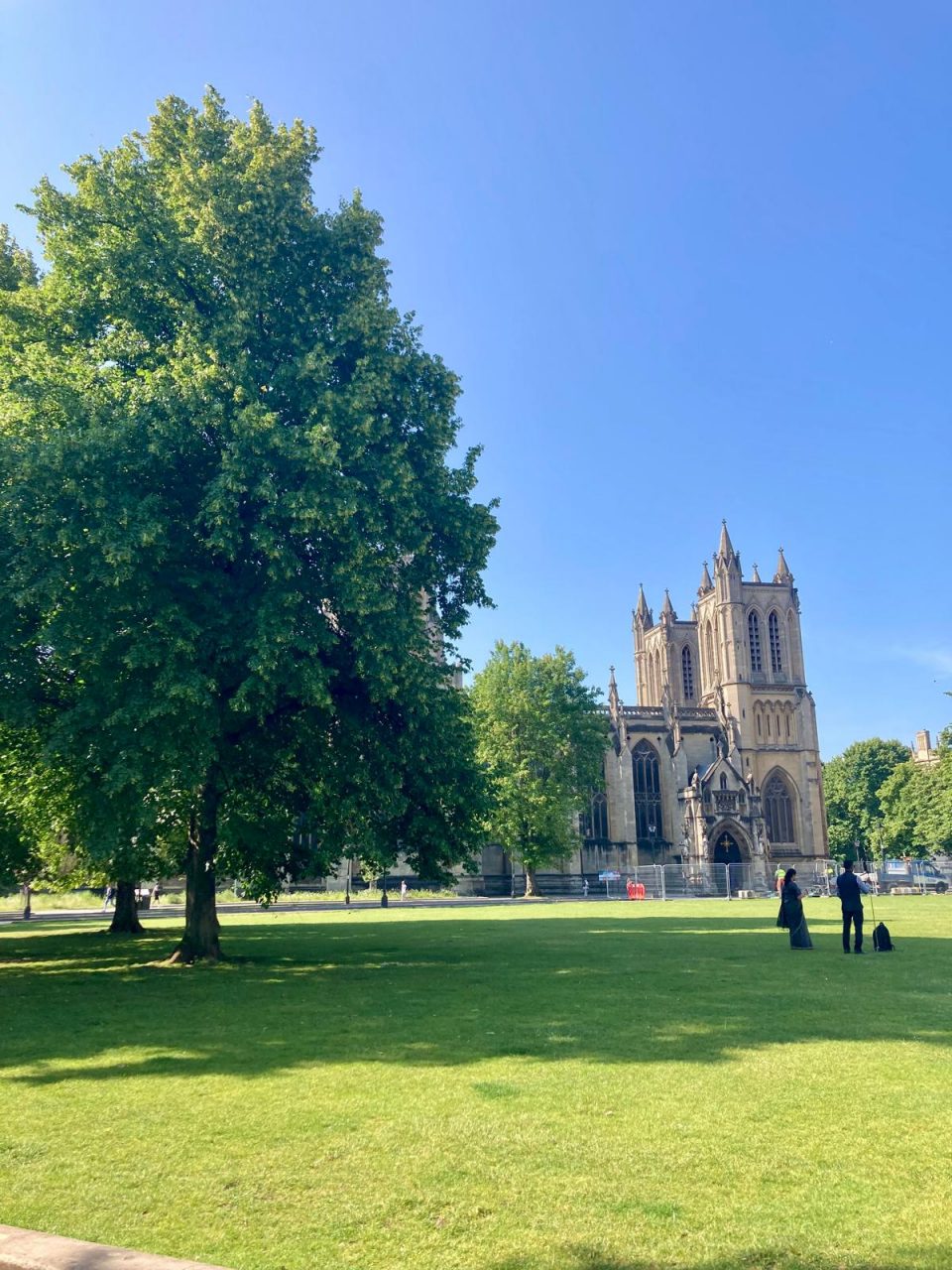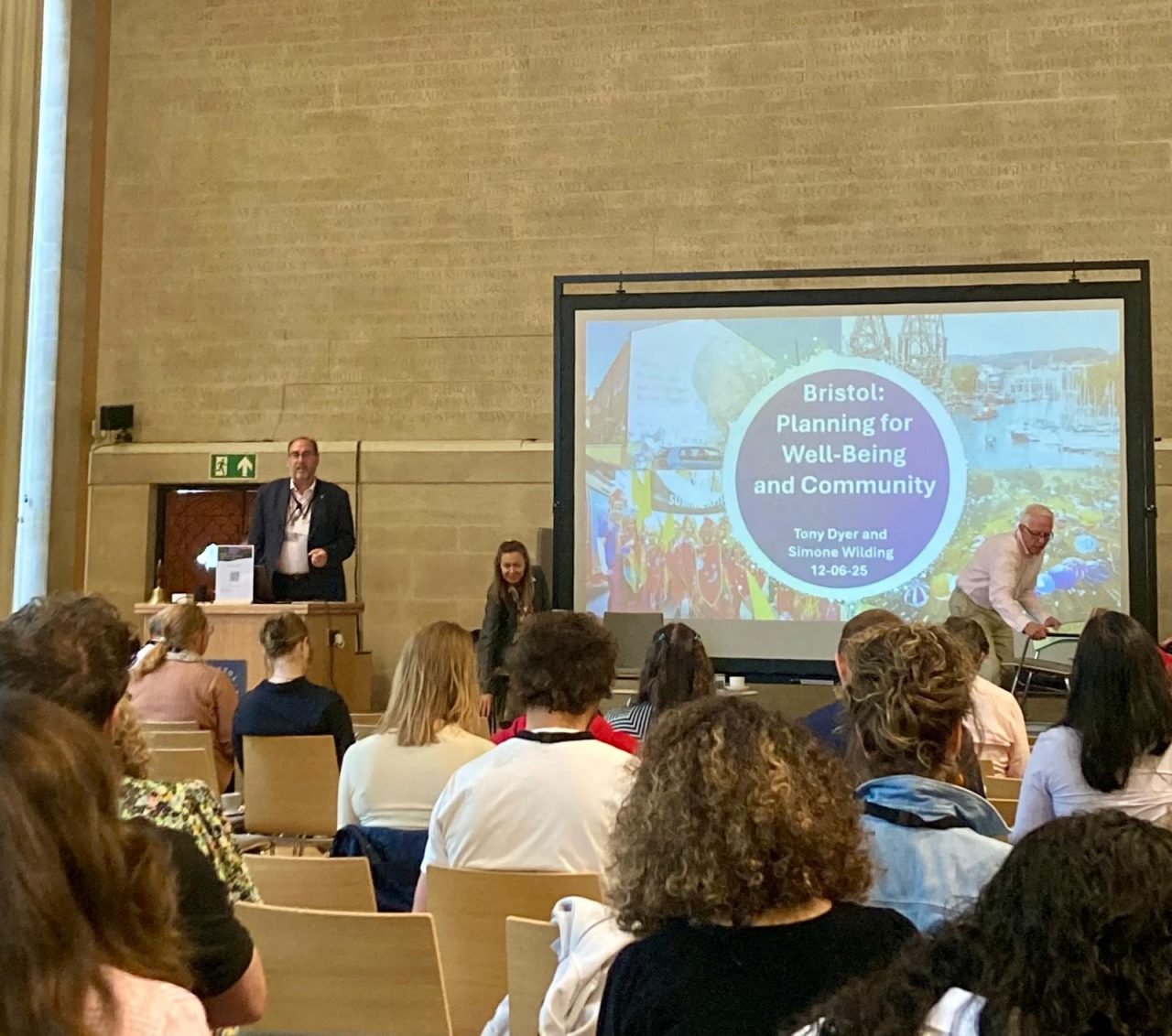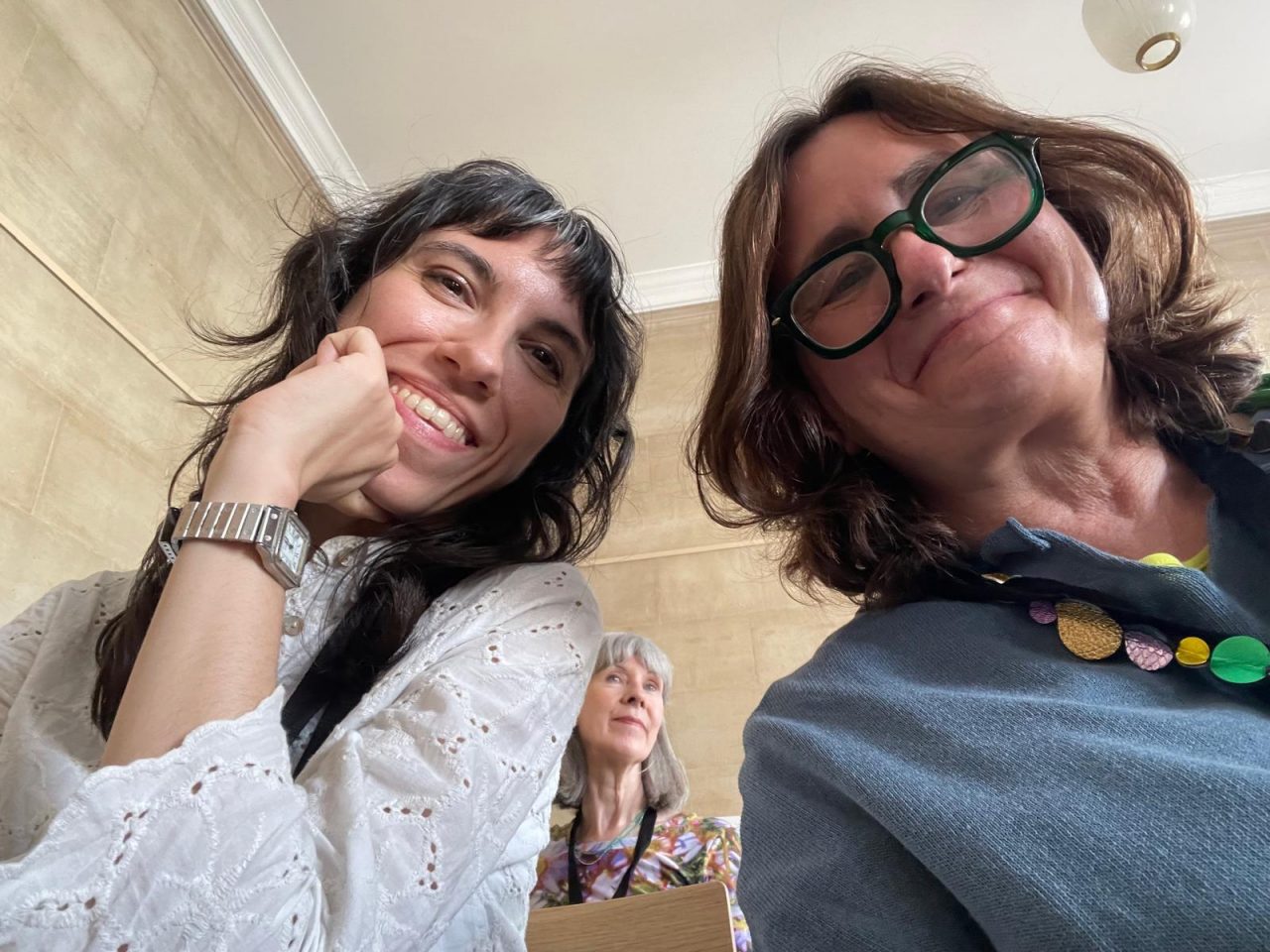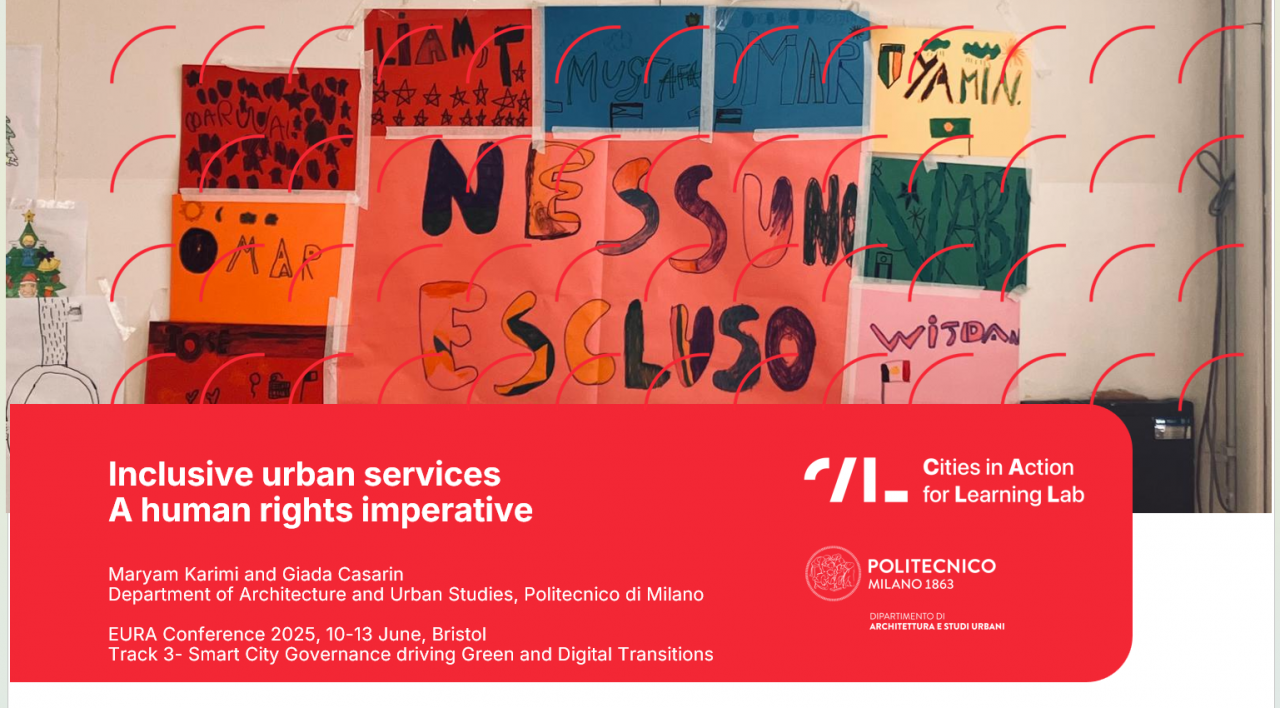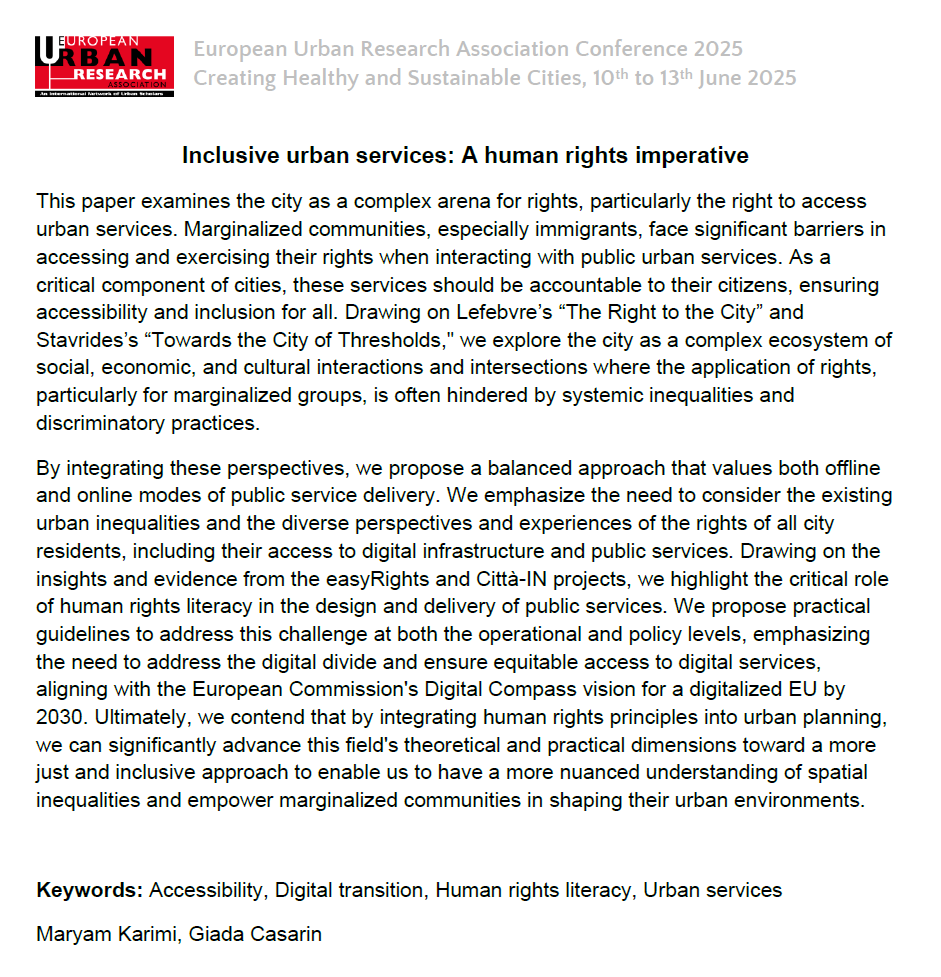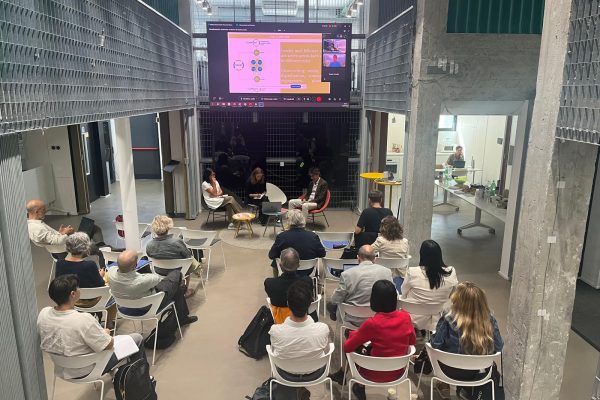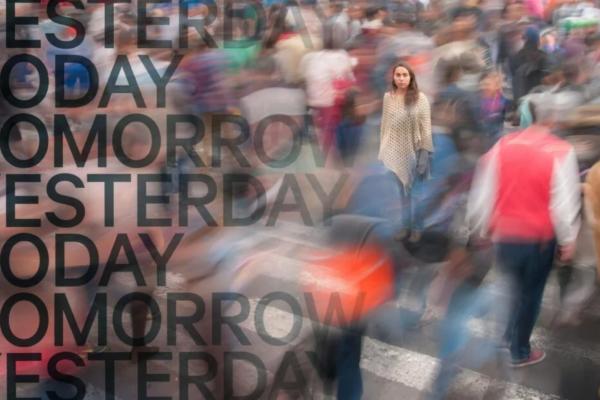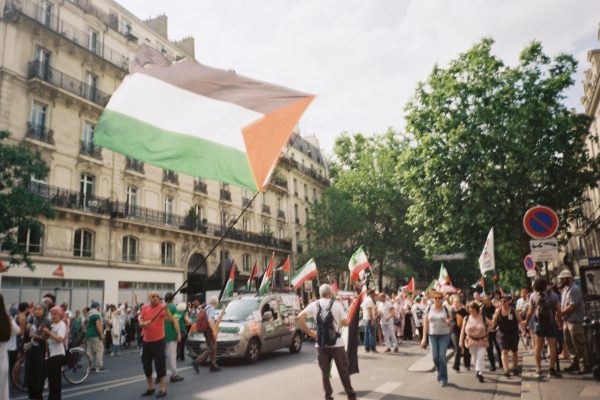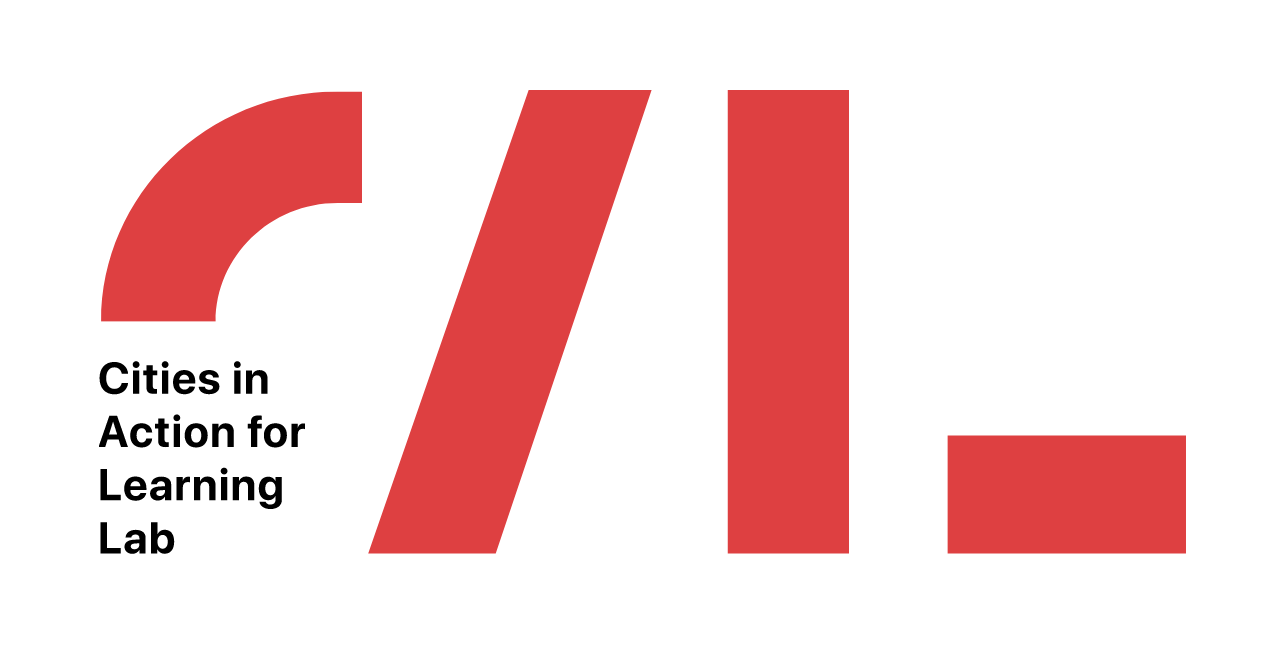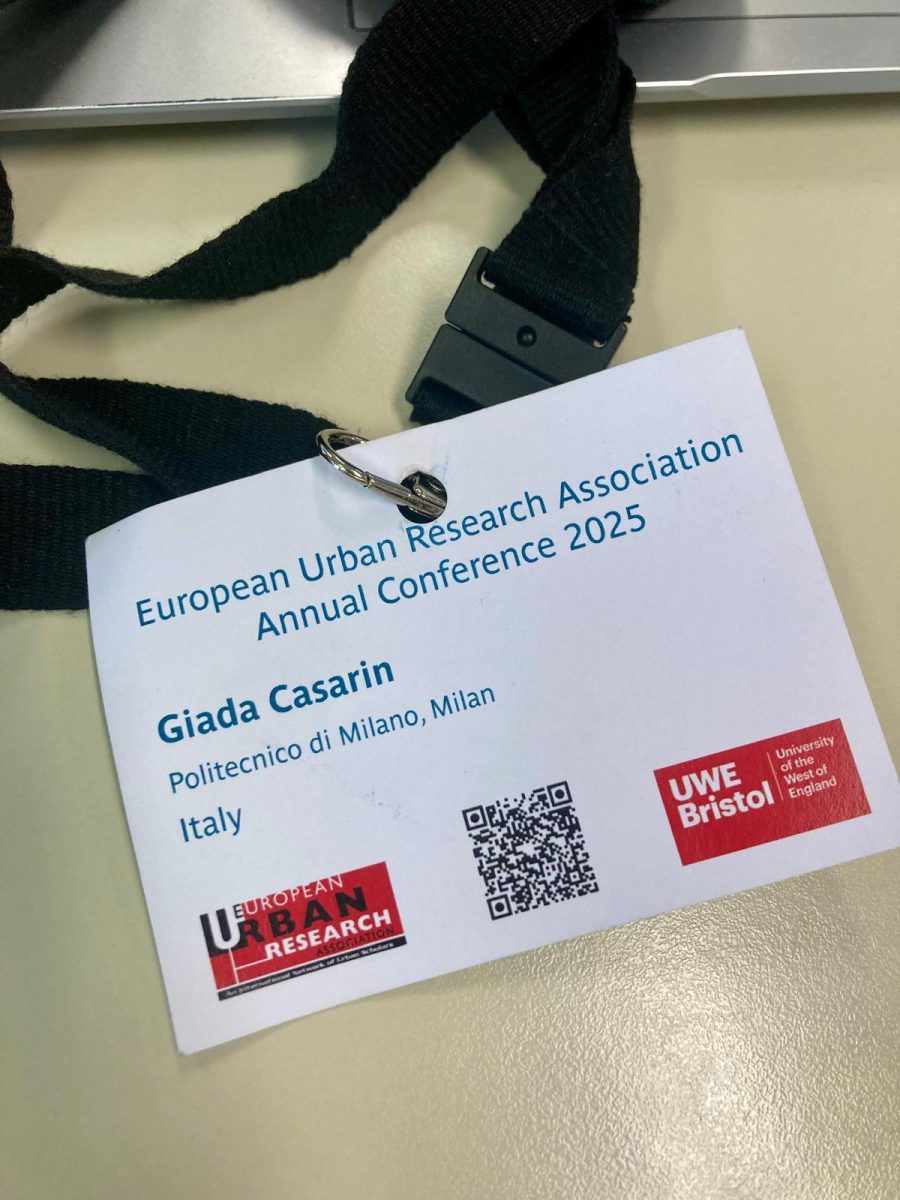
CALL at the EURA 2025 International Conference in Bristol
Envisioning Translocality
Enabling Institutions
Enforcing Practices
Giada Casarin and Maryam Karimi participated in the European Urban Research Association (EURA) 2025 Conference, held in Bristol, UK, and hosted by the University of West England’s Centre for Sustainable Planning and Environments. This year, the conference theme was “Creating Healthy and Sustainable Cities”, and Giada and Maryam’s paper was part of the thematic track “Smart City Governance driving Green and Digital Transitions”, which placed particular emphasis on strategies to address risks of social injustice and exclusion.
Their paper “Inclusive Urban Service: A Human Rights Imperative” draws on main findings and outputs from the easyRights and città-IN research projects to highlight the crucial role of a human rights-based approach within the design and delivery of public urban services. After describing the projects’ outputs, including the Mediation Grammar testing methodology, the easyRigths Agent, and the manual Parliamo di Scuola, Giada’s presentation suggested a few practical policy recommendations to enable policymakers to put people and their rights at the center. These recommendations included:
- Service assessment: Assessing the quality of public services from the immigrant’s experience and empowerment level.
- Inclusive design and communication: Adopting an intersectional approach to the design and delivery of digital platforms, being aware of interconnected rights and barriers.
- Digital and human rights literacy: Providing training and education on digital and human rights at the core of different government scales.
- Alternative offline access: Offering offline options to the access of public services in order to reach vulnerable and marginalized communities.
Alongside insightful parallel sessions and plenaries, participating in the conference was also a great opportunity to network with international scholars as well as to learn more about the city of Bristol through interesting mobile workshops. Giada participated in the workshop “Race, Rebelling and Regeneration”, a walking tour through the city’s ongoing decolonisation process and the grassroots movements that paved the way for current UK equality laws. From the 1963 Bristol Bus Boycott to the 2020 Black Lives Matter protest and the toppling of Edward Colston’s statue, rebellions and political activism to achieve civil rights and rights to the city have reshaped public space and affected local discourse on inequalities and representation.
Bristol serves as an example of how inclusivity within the city cannot be fully achieved without confronting the past, and giving voice and agency to diverse communities, so that everyone can feel represented and respected.
